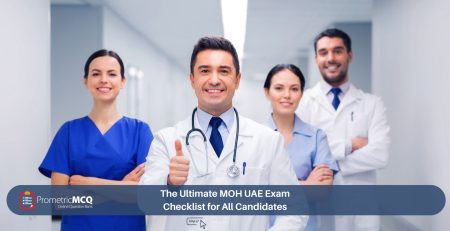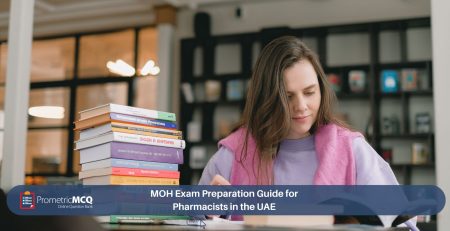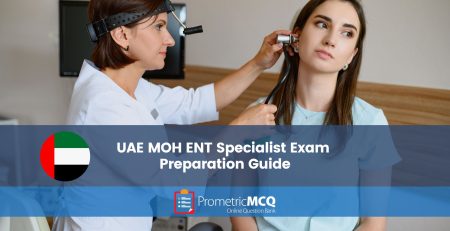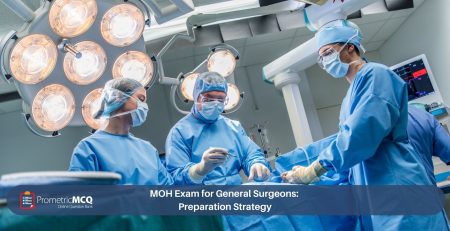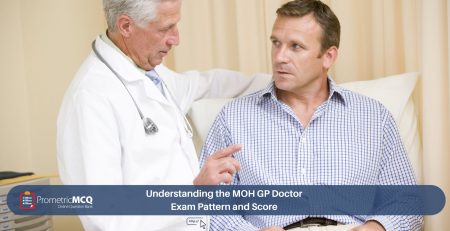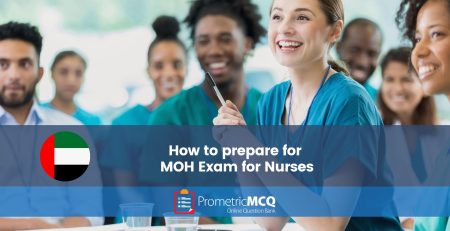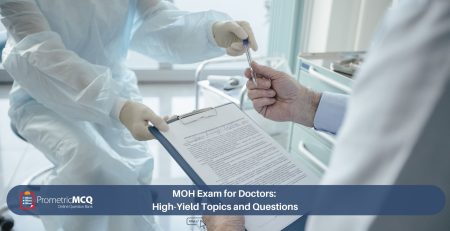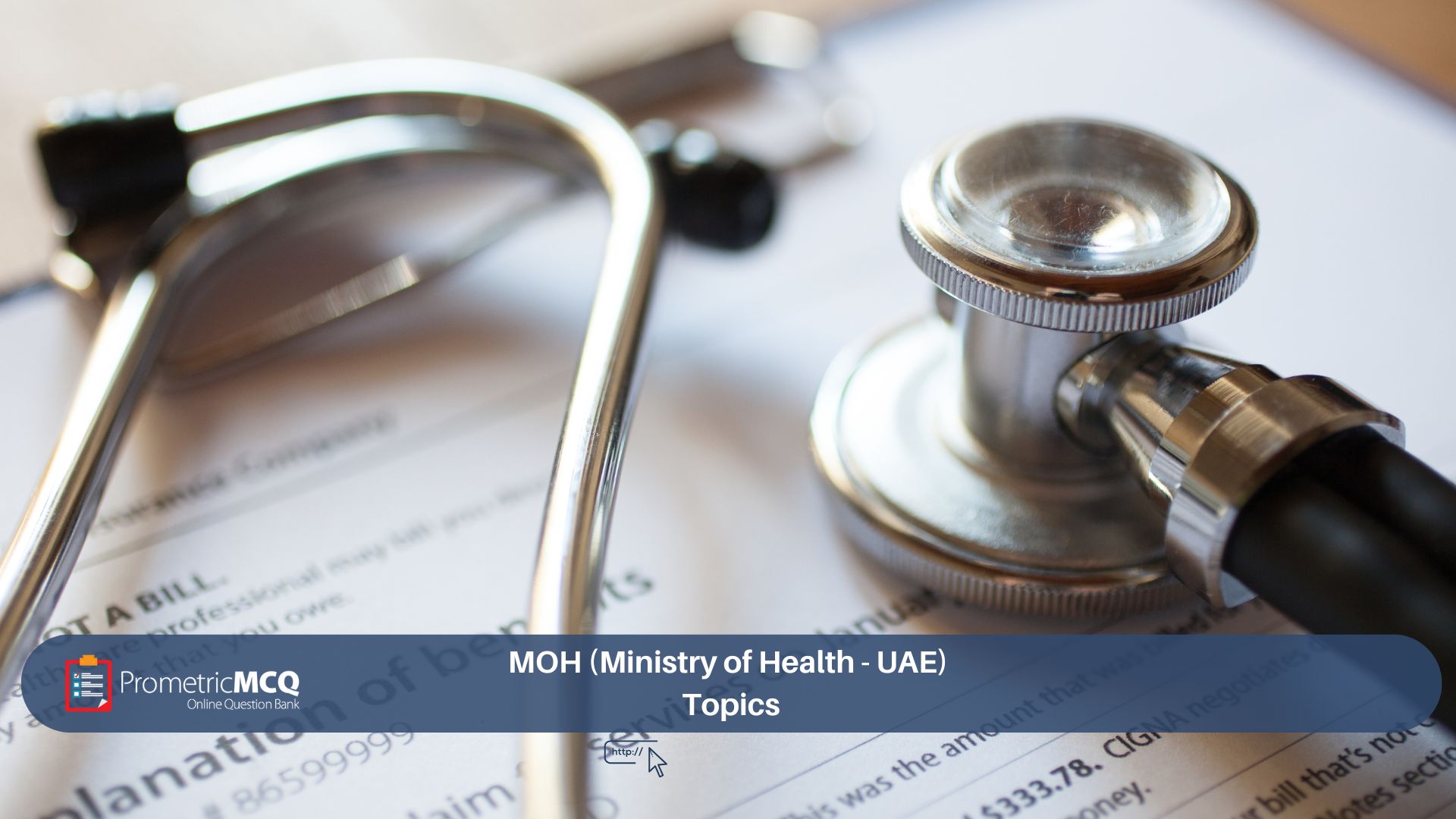
MOH (Ministry of Health – UAE) Topics
fatima@prometricmcq.com2025-09-24T16:51:03+00:00Table of Contents
ToggleMOH (Ministry of Health – UAE) Exam Topics: A Comprehensive 2025 Guide
For healthcare professionals across the globe, the United Arab Emirates represents a pinnacle of career opportunity, boasting a world-class healthcare infrastructure and a commitment to medical excellence. While Dubai (DHA) and Abu Dhabi (DOH) have their own licensing bodies, practicing in the Northern Emirates—Sharjah, Ajman, Umm Al-Quwain, Ras Al-Khaimah, and Fujairah—requires passing the formidable Ministry of Health and Prevention (MOHAP) examination. This exam is the crucial step to obtaining your UAE MOH license.
The MOHAP exam, often simply called the MOH exam, is a comprehensive assessment designed to ensure that all practitioners meet the UAE’s high standards of clinical knowledge, safety, and ethical practice. It is not an exam that can be passed with superficial knowledge; it requires a deep, strategic understanding of the high-yield topics specific to your profession. Knowing what to study is the first and most critical step in your preparation journey.
This exhaustive guide is your definitive roadmap to the MOH exam topics for 2025. We will provide a granular breakdown of the essential subjects for all major healthcare specializations, including doctors, dentists, nurses, pharmacists, and allied health professionals. From universal topics like UAE healthcare regulations to the specific clinical scenarios you’ll face in your field, this article will equip you with the clarity and focus needed to conquer the MOH exam.
Key Takeaways for MOH Exam Success
- Broad Clinical Knowledge is Essential: The MOH exam covers a wide range of topics within each specialty, emphasizing common clinical presentations and emergency management.
- UAE Regulations are Crucial: Unlike purely clinical exams, the MOHAP test includes questions on local healthcare laws, ethics, and patient rights. This is especially vital for pharmacists.
- Patient Safety is the Core Theme: Across all specializations, a significant portion of questions will test your understanding of patient safety protocols, infection control, and risk management.
- Case-Based Scenarios Dominate: The exam is not about rote memorization. It uses clinical vignettes to test your diagnostic and decision-making skills in real-world situations.
- Structured Preparation is Non-Negotiable: A well-planned study schedule focused on high-yield topics and extensive MCQ practice is the only proven path to success.
Universal MOHAP Exam Topics (Applicable to All Specializations)
Before diving into profession-specific subjects, it’s vital to understand the universal domains that every candidate, regardless of their specialty, must master. These topics form the foundational layer of the MOH exam and reflect the core values of the UAE’s healthcare system.
- Medical Ethics and Professionalism: This includes patient consent (informed, implied), confidentiality (HIPAA principles are often mirrored), patient autonomy, and managing professional boundaries.
- UAE Healthcare Laws and Regulations: You must have a basic understanding of the legal framework governing healthcare in the UAE. This includes patient rights and responsibilities, medical malpractice laws, and the role of MOHAP.
- Patient Safety and Quality Improvement: This is a major focus. Topics include root cause analysis, sentinel events, medication error prevention (the “10 Rights”), fall prevention protocols, and using tools like SBAR for effective communication.
- Infection Prevention and Control: Expect detailed questions on standard, contact, droplet, and airborne precautions. You must know the correct use of Personal Protective Equipment (PPE), principles of sterilization and disinfection, and management of healthcare-associated infections (HAIs).
- Communication and Interpersonal Skills: Scenarios may test your ability to break bad news, handle difficult or angry patients, and collaborate effectively with other members of the healthcare team.
While your clinical knowledge is the engine of your preparation, understanding these universal topics is the chassis that holds it all together. Do not neglect them.
Deep Dive: MOH Exam Topics by Specialization
This is the core of your study plan. We’ve broken down the high-yield topics for the most common healthcare professions taking the MOH exam. For a complete overview of the process, our MOH Examination Guide is an excellent starting point.
1. Doctors (General Practitioner)
The MOH exam for General Practitioners is exceptionally broad, requiring a solid, up-to-date knowledge base across multiple disciplines.
| Discipline | High-Yield Topics |
|---|---|
| Internal Medicine | Management of common chronic diseases (Hypertension, Diabetes Mellitus type 2, Dyslipidemia, Asthma, COPD). Diagnosis and initial management of acute conditions (Acute Coronary Syndrome, Stroke, DKA/HHS). Interpretation of common ECGs, chest X-rays, and lab results. |
| Pediatrics | Developmental milestones (birth to 5 years). Common infectious diseases (e.g., bronchiolitis, gastroenteritis). Vaccine schedules. Management of pediatric emergencies like dehydration and febrile seizures. |
| Obstetrics & Gynecology | Routine antenatal care. Management of common complaints in pregnancy. Recognizing obstetric emergencies (e.g., pre-eclampsia, ectopic pregnancy, postpartum hemorrhage). Common gynecological issues (e.g., PCOS, abnormal uterine bleeding). |
| General Surgery & Emergency Medicine | Assessment and initial management of acute abdomen (appendicitis, cholecystitis). Principles of wound care and trauma management (ATLS basics). Recognizing and managing anaphylaxis and sepsis. |
2. Nurses
The MOH nursing exam is a test of critical thinking, prioritization, and safety.
| Domain | High-Yield Topics |
|---|---|
| Fundamentals of Nursing | Nursing process (ADPIE), vital signs interpretation, fluid and electrolyte balance/imbalance, IV therapy and its complications (phlebitis, infiltration), therapeutic communication, and documentation. |
| Medical-Surgical Nursing | Comprehensive care for patients with cardiovascular, respiratory, endocrine, and neurological disorders. Pre-operative and post-operative care, including pain management and prevention of complications like DVT and pneumonia. |
| Pharmacology | Medication dosage calculations are guaranteed. You must master the “10 Rights” of medication administration, know major drug classes, and recognize common side effects and adverse reactions. |
| Prioritization & Delegation | Scenario-based questions asking which patient to see first (using ABCs, Maslow’s hierarchy) and what tasks can be safely delegated to an unlicensed assistive personnel (UAP). |
3. Pharmacists
The MOH exam for pharmacists is unique due to its heavy emphasis on local laws.
| Domain | High-Yield Topics |
|---|---|
| Clinical Pharmacy & Therapeutics | Pharmacotherapy of common chronic diseases, antibiotic stewardship, management of drug interactions, and patient counseling points for major drug classes. |
| Pharmaceutics & Compounding | Pharmaceutical dosage forms, biopharmaceutics (absorption, distribution, metabolism, excretion), and principles of sterile and non-sterile compounding. |
| Pharmaceutical Calculations | Alligation, dilution and concentration, dosage calculations based on weight and body surface area, and infusion rate calculations. Accuracy is paramount. |
| UAE Pharmacy Law & Regulations | CRITICAL TOPIC: Dispensing regulations for controlled, semi-controlled, and narcotic drugs in the UAE. Prescription validity, patient identification requirements, and inventory management rules. This section can make or break your exam. |
4. Dentists
The MOH exam for dentists assesses a wide range of clinical competencies.
| Discipline | High-Yield Topics |
|---|---|
| Operative Dentistry & Endodontics | Caries diagnosis and classification, principles of cavity preparation, properties of dental materials, diagnosis of pulpal and periapical pathology, and root canal treatment principles. |
| Oral Surgery & Radiology | Indications and contraindications for extractions, management of medical emergencies in the dental chair, local anesthesia techniques and complications, and interpretation of common dental radiographs (periapical, bitewing, OPG). |
| Periodontics & Prosthodontics | Diagnosis and classification of periodontal diseases, principles of non-surgical periodontal therapy, and fundamentals of complete dentures, removable partial dentures, and fixed prosthodontics (crowns and bridges). |
Frequently Asked Questions (FAQs) About MOH Exam Topics
The Ministry of Health and Prevention (MOHAP) does not publish a detailed, line-by-line syllabus. The exam blueprint is based on the scope of practice for each profession. The topics listed in this guide are derived from official competency frameworks and extensive analysis of past exams. For official information on licensing, the MOHAP professionals evaluation page is the primary source.
The core clinical topics are very similar across all three UAE health authorities, as they all test for competent, safe practice based on international standards. The main difference is that the MOH exam covers the regulations for the Northern Emirates, while DHA and DOH have their own specific regulatory nuances. However, a candidate well-prepared for one exam is generally well-prepared for the others.
No. The exam will always use generic names for medications (e.g., “atorvastatin,” not “Lipitor”) and generic terms for materials and equipment. The focus is on your understanding of the principles, not on your knowledge of brand names.
The vast majority of clinical content is based on established international guidelines (e.g., from AHA for cardiology, GOLD for COPD). However, you must be aware of any specific UAE public health priorities or regulations, especially concerning communicable diseases and pharmacy law.
Yes. While the bulk of your exam will be on your specific specialty (e.g., cardiology), you are still expected to have a solid foundation in general medicine, particularly in managing common emergencies and recognizing conditions outside your field that require urgent referral.
No, there is no negative marking. Your score is based only on the number of correct answers. Therefore, you must answer every single question, even if you have to make an educated guess.
The exact weightage is not publicly disclosed. However, based on candidate feedback, the distribution of questions generally reflects the prevalence of conditions seen in primary care. For a GP, you can expect a heavy emphasis on Internal Medicine and Family Medicine, followed by Pediatrics, OB/GYN, and Emergency Medicine. Surgery topics are typically focused on diagnosis and referral rather than operative technique.
This can be challenging as there isn’t one single textbook. The best approach is to use a high-quality, UAE-focused QBank, as these resources specifically research and incorporate these topics into their practice questions. Additionally, familiarizing yourself with the patient rights charter on the MOHAP website is beneficial.
The core topics and fundamental principles remain consistent. However, the exam is periodically updated to reflect major changes in international clinical guidelines, new drug approvals, and evolving standards of care. Preparing with up-to-date materials for 2025 is essential.
The most effective way to master these topics is through extensive practice with exam-style MCQs. A comprehensive question bank is your most valuable tool. You can find tailored MCQ packages for every MOH specialization at PrometricMCQ Packages.
Conclusion: Your Blueprint for Success
The MOHAP exam is a comprehensive test of your professional competence, designed to uphold the highest standards of healthcare in the UAE. Success is not a matter of chance; it is the direct result of a structured and focused preparation strategy. By using this guide to understand the high-yield topics relevant to your specialization and dedicating yourself to consistent study and MCQ practice, you can approach the exam with the knowledge and confidence needed to achieve a passing score and begin the next exciting chapter of your career.
Transform Your Knowledge into a Passing Score
Our premium question banks are meticulously designed to cover all the high-yield MOH exam topics for your specific profession. Start practicing today and build the confidence to pass on your first attempt.

